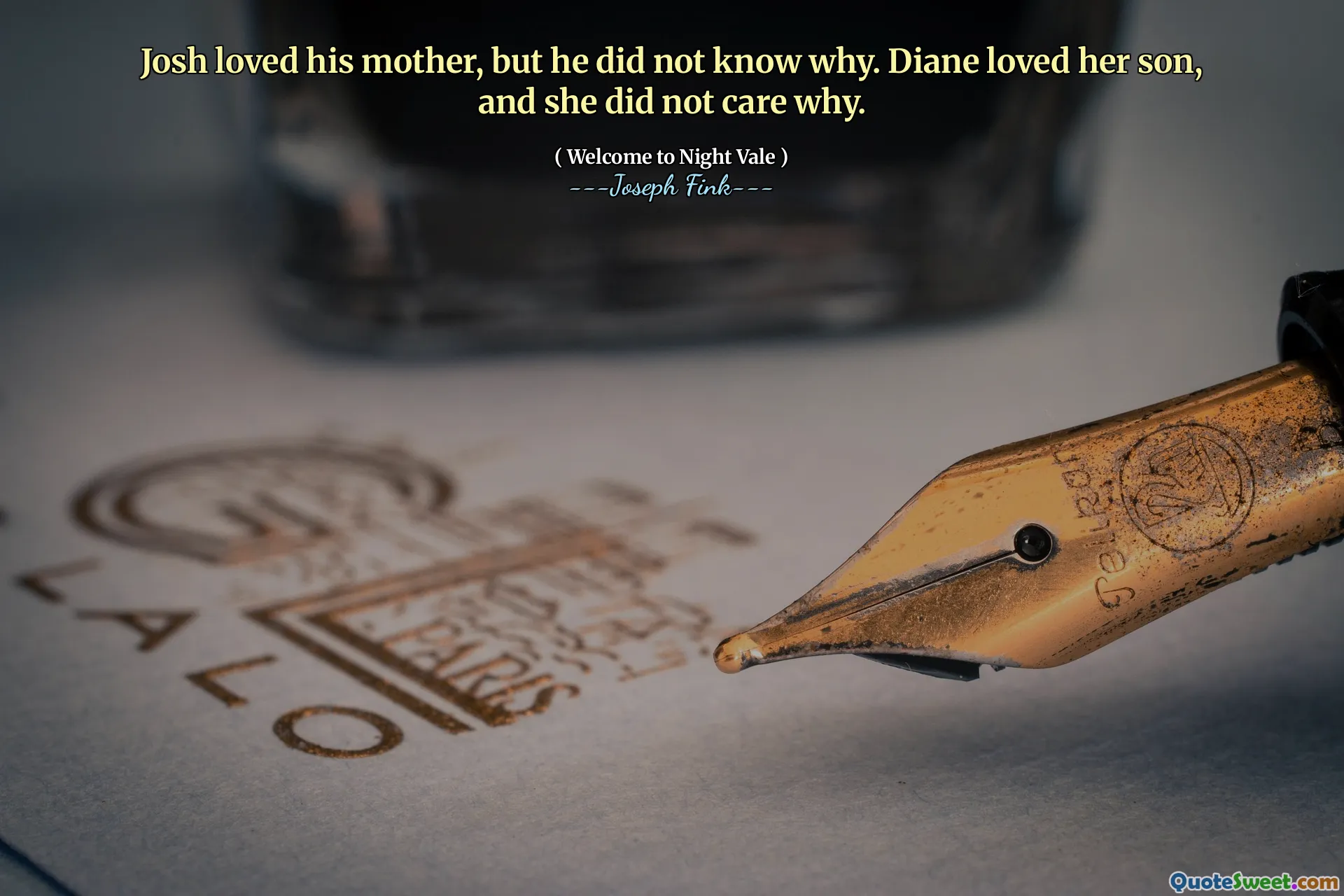
Josh loved his mother, but he did not know why. Diane loved her son, and she did not care why.
This quote delves into the complex nature of love and emotional expression within familial relationships. Josh's love for his mother appears to be somewhat uncertain or unexplained, which hints at the possibility of love being a product of social expectation, habit, or unconditional attachment rather than fully understood or mutual emotional clarity. His lack of understanding about the reasons behind his love may reflect introspection, childhood naivety, or societal conditioning that compels him to care without actively analyzing the reason. Conversely, Diane's love for her son is described as unwavering and unconditional, emphasizing that her affection isn't contingent upon reasons or reciprocation. Her indifference to why she loves him suggests that true or deep love often exists independently of explicit rationale; it simply is. This contrast underscores different attitudes towards love—one possibly being ambiguous or hesitant, and the other being fierce, unconditional, and selfless. Such a depiction invites reflection on how love manifests differently depending on individual experiences, cultural expectations, or personal convictions. It challenges the reader to think about the nature of love itself—whether it requires comprehension, or whether it can simply be an instinct or state of being. This quote encapsulates the nuances of emotional bonds and prompts us to examine our own relationships, encouraging us to consider whether love needs reasons, or if its worth is sometimes just in its presence, regardless of explanation.






